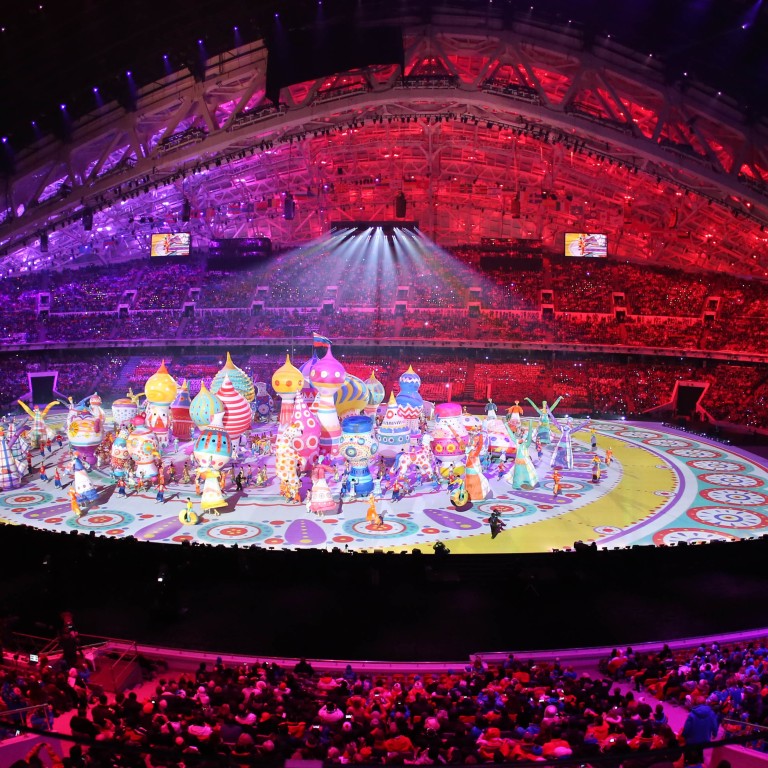
New | ‘Epic’ Olympics opening ceremony a triumph for Putin, says world’s press
Newspapers praise the opening ceremony at the Sochi Winter Olympics, but some voice reservations over costs and human rights
The world’s press hailed the opening ceremony of the Sochi Winter Olympics as a triumph and show of power for Russian President Vladimir Putin seeking to showcase the post-Soviet revival of the former superpower.
Despite an embarrassing technical glitch at the start, there was general praise for the dazzling spectacle in the Black Sea resort, along with a dose of criticism over these Games’ unprecedented price tag of US$50 billion and the host country’s human rights record.
“A swaggering, resurgent Russia turned its Winter Olympic aspirations into reality,” wrote the New York Times.
“A swaggering, resurgent Russia turned its Winter Olympic aspirations into reality.”
The stunning show of light that whisked spectators through centuries of Russian history was “epic,” said the Sydney Morning Herald, its “scale bordered on the colossal,” according to the Washington Post, a “gasp-inducing, visual journey,” according to The Daily Telegraph.
“The opening ceremony is a big moment to let the president, under the spotlight, stress the revival of the great nation,” wrote Japan’s Yomiuri Shimbun.
“For Russia last night it marked its revival as a post-Soviet powerhouse, confident of its seat at the top table after two decades of doubt and despondency,” wrote Jonathan McEvoy in Britain’s Daily Mail.

“This was an unapologetic advert – history on Russia’s terms.
“There was no doubt who was the all-action hero of this piece. The light on the presidential box remained on when all others were switched off, in case anyone did not get the message,” he wrote.
“Mr Putin’s ultimate goal is to regain pride and boost patriotism and national prestige,” wrote the Mainichi Shimbun in Japan.
The ceremony got off to a shaky start when one of five illuminated snowflakes which were supposed to morph into the Olympic rings failed to appear, leaving an embarrassing set of just four rings.
Many pointed out that the missing ring was one representing the Americas, home of Russia’s Cold War foe the United States, with whom it has repeatedly sparred over the past several years.
The US president joined several other key Western leaders in staying away from the Games in what is seen by many as a snub over Russia’s now notorious anti-gay law.
“Rarely have Olympic Games been personified or excessive to this point.”
Germany’s Suddeutsche Zeitung called the mishap “silent propaganda”.
The ceremony “highlighted the beauty of the Russian culture and strength of the Russian spirit ... [but] did little to lift the cloud of uneasiness hanging over a Games that began amid protests over Russian anti-gay laws and fear over terrorism,” wrote the Los Angeles Times.
“For President Putin it is a chance to show off Russia as a resurgent superpower, but his efforts have been hampered by a plethora of problems and criticism from the gay community, human rights groups and even animal rights activists,” wrote The Times in Britain.
Many Italian newspapers saw the multi-coloured uniforms of Germany – the team’s outfits were blue, yellow, green, white – as a challenge to Russia’s anti-gay law since they echoed the multi-coloured gay pride flag.

The price tag for the games in Sochi had come in at an unprecedented and staggering US$50 billion amid cries of protest that corruption has seen much of the money siphoned off and that concerns for the environment had been discarded.
“Rarely have Olympic Games been personified or excessive to this point. Vladimir Putin, the Tsar of the Kremlin, worked alone for Sochi’s destiny. Without worrying about the staggering costs or the flouted human rights,” wrote France’s L’Equipe sports newspaper.
“There was a lot of Russian-tinted pride to tell the world that the power of yesteryear is back,” wrote Italy’s La Stampa. But “the show was too big and costly for a Winter Olympics”.
China’s press said highlighting such concerns in the Games coverage only exposed the Western media bias.
“Booing Sochi only shows West’s bigotry,” wrote the official Global Times.
“Since the ending of the Cold War, only the 2008 Beijing Games and the ongoing Sochi Games have experienced such criticism.”
“Booing Sochi only shows West’s bigotry.”
Russians meanwhile gushed at the “fairy tale” spectacle, saying it restored pride missing for too long in the former superpower.
“We missed this for so many years ... a pride for our country, a feeling for her power, unity and greatness. We missed this feeling, to be great people of a great power. Yesterday, we felt it,” wrote the Moskovsky Komsomolets.
“Many of us feared that the ceremony would turn into a demonstration of might and power. This did not happen. It was humane and not just for export – it was addressed at Russians as much as foreigners,” wrote the Sport Express Daily.
